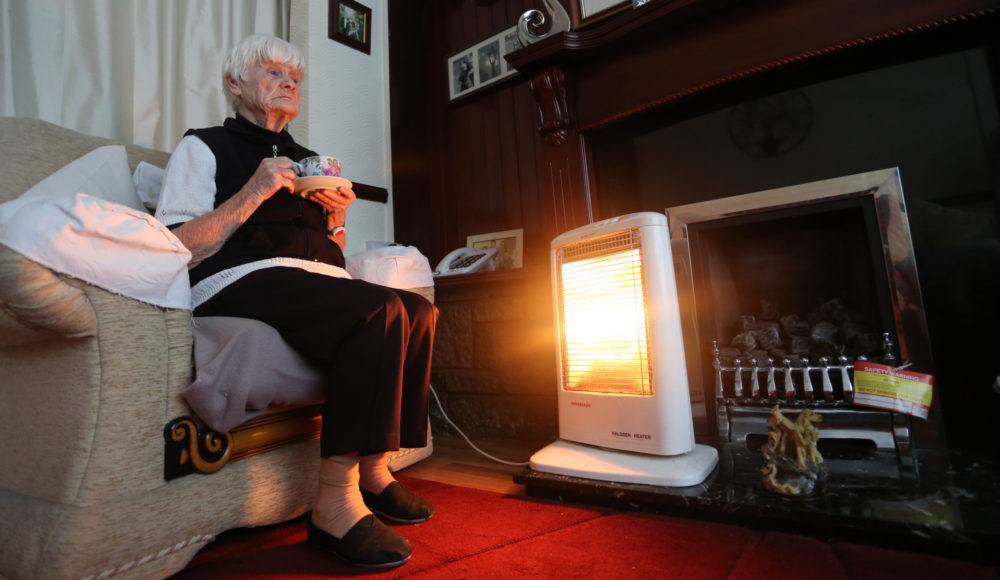Half of Welsh adults likely to ration energy use this Winter amid Rising Costs

As energy bills once again begin to climb, many households in Wales are bracing for tough decisions this winter.
A new survey conducted by National Energy Action Cymru alongside YouGov has revealed that over 50% of adults in Wales are likely to ration their energy usage during the colder months, reducing consumption below levels necessary for comfort and wellbeing.
The survey, which questioned over 1,000 Welsh adults, highlights the growing strain energy costs are placing on households across the country. With a 10% increase in energy bills set to take effect on October 1st, the impact of these rising costs is expected to be severe.
Challenging
For many households in Wales, the struggle to afford energy is not new. Almost a third (31%) of respondents reported difficulties in paying for their energy in the past year, with the situation proving particularly challenging for those on lower incomes.
Among households earning the least, over half (51%) said they have struggled to meet the cost of energy bills. This comes against the backdrop of a UK-wide energy crisis, which could push around 6 million households into fuel poverty – defined as needing to spend 10% or more of household income on energy to maintain a satisfactory heating regime.
The increase means a typical GB household will face an annual bill of £1,717, up from £1,568. Households in Wales face higher than average bills, with typical households in south Wales paying £1,753 and in north Wales, £1,764.
These figures compound the challenges already being faced by Welsh residents, particularly those on prepayment meters, a group that numbers around 200,000 households in Wales. Prepayment customers, who often include the most vulnerable, face additional hardships, including the immediate impact of higher prices when topping up their meters.
Sacrifices
In response to these rising costs, many Welsh residents are already making significant sacrifices. According to the survey, 48% of Welsh adults have been turning off more lights than they wanted to, in a bid to reduce their energy consumption.
A notable 42% have cut back on the use of baths or showers, while 29% admitted to running their washing machines less frequently than needed.
More concerning, however, is the growing trend of households forgoing essential activities. Over a quarter (27%) of Welsh respondents have chosen to eat cold meals to avoid using their ovens, while 4% of adults reported rationing their use of essential medical equipment, such as oxygen machines and hoists.
The survey also found that 8% of respondents have missed payments on other essential bills, including rent, mortgage, or council tax, underscoring the wide-reaching impact of the energy crisis on broader household finances.
Ben Saltmarsh, Head of National Energy Action Wales, expressed deep concern about the situation: “The energy crisis has cut deep in Wales and its impact is not going away.
“Some households are resorting to drastic strategies like going without heating even when it’s cold, eating cold food, and having cold showers. With around 200,000 households in Wales on prepayment meters, the impact for them is even more acute. Now with less support available and record levels of debt, vulnerable Welsh households are more in need than ever.”
Risks
As the winter months approach, the risks for Welsh households are expected to escalate. Beyond the immediate rise in energy bills, many vulnerable individuals could be left without vital financial support.
The eligibility criteria for the Winter Fuel Payment have recently changed, excluding many low-income pensioners from receiving the £200 to £300 annual payment that they may have once relied upon. According to Age UK, nearly 2 million vulnerable pensioners across the UK could miss out on this support.
In Wales, this is particularly alarming given that 880,000 eligible pensioners across the UK do not currently claim pension credit, leaving them without access to Winter Fuel Payments. This loss of financial assistance could leave some of the country’s most vulnerable residents facing difficult choices in the months ahead.
The rising energy bills, combined with reduced support measures, are expected to place unprecedented pressure on Welsh households this winter. Many families, already dealing with high levels of debt, will be forced to make difficult trade-offs to keep up with the costs of daily living.
While the UK government has introduced some measures to alleviate the burden of rising energy costs, such as price caps, these actions have done little to offset the mounting challenges faced by many, with energy debts across the UK now reaching a record £3.7 billion.
For more information on the energy crisis and advice on managing energy use, residents can visit National Energy Action Cymru’s website here.
Support our Nation today
For the price of a cup of coffee a month you can help us create an independent, not-for-profit, national news service for the people of Wales, by the people of Wales.






